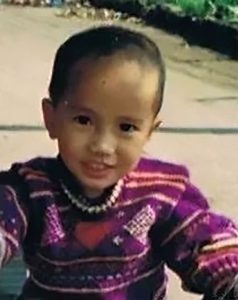Unless you’ve been living under a rock somewhere in Bermuda, you must have noticed the new internet rave – something called FaceApp. And that’s if you’ve not hopped on the face-ageing train yourself.
Well, since it hit the interwebs, the face-changing app which uses AI to produce incredibly realistic and authentic images of what people would look like if they were 40 years older has got celebrities and social media enthusiasts tripping over themselves to post and catch some harmless fun, though many fear that it may not be harmless fun after all.
The FaceApp app has already been downloaded over 150 million times on Play Store alone and there have been talks of user data getting into the wrong hands; a concern borne out of the fact that the creators of the app can be traced to Russia and the relatively-unknown company in question has no record when it comes to data integrity.
The creators of the app have since attempted to clear the air as per the terms of use but you get the feeling that even if they hadn’t, concerns over data privacy was never going to stop people from using a really cool app — not in this day and age of social media craze. And maybe this FaceApp thingy is not that spooky after all. In fact, maybe it’s actually useful. And it did prove very useful quite recently too.
A few days ago, word got out that a man who was kidnapped as a toddler was reunited with his family after 18 years – when the police managed to track him down using a similar face-ageing app.
Yu Weifang, who will be 21 this month, met his parents for the first time since he was a child – all thanks to the FaceApp-style Al technology created by the Chinese tech giant, Tencent.


Yu Weifang, back in 2001 | Image Courtesy mirror.co.uk
Working in a similar way as the trending face-ageing app, police used the technology to predict what the 21-year-old would look like now and matched his features to a database with thousands of people.
The cold-case investigators in south China’s Guangdong Province used the Al technology product along with existing facial recognition intelligence to locate the missing man.
After sorting through nearly 100 potential candidates, officers narrowed them down to 21-year-old Weifang – a student of a school in China’s Guangzhou province. The youngster initially doubted the story that he had been kidnapped as a child but DNA tests confirmed a match with his biological parents.
Weifang, whose adoptive parents named Li, went missing in 2001 near a construction site where his father worked. His parents filed a missing person report and the incident was treated as a kidnapping case.


Emotional moment the parents reunited with their long lost son. | Image Courtesy mirror.co.uk
His biological parents, Yu Xingquan and Rong Muhuan, scoured neighbouring cities for months in search of their mission son but could not find any trace of him. At some point, they even offered a reward of 100,000 RMB (£11,600) for anyone with information about the whereabouts of their little boy.
But all those efforts proved abortive. The boy had been missing for eighteen years, up until the FaceApp-style app produced a reasonably accurate prediction of what he’d look like now. That was how the authorities tracked him down. Turns out FaceApp is not so bad after all.
For more articles like this, visit www.weetracker.com






Comments